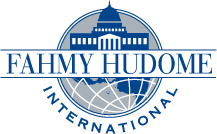Hidden Assets
Originally published on January 3, 2006 in the Wall Street Journal.
Often what we seek is right in front of us, if we only look. Our government has focused on the vital national security challenges posed in the post-9/11 environment — challenges in law enforcement, intelligence gathering and public diplomacy. Yet we have an untapped resource in all 50 states that can provide insight into many of these challenges — the American Arab and Muslim community. This community best understands the culture, language, motivations and people of the Middle East, yet they have been underutilized on the frontlines of the global war on terror.
While President Bush has appointed more Arab- and Muslim-Americans to senior positions than any previous administration, the rest of the government has been slow to follow his lead. In law-enforcement and intelligence, the U.S. government is desperate to recruit talented individuals for critical counterterrorism, border-security and global-intelligence efforts. While the CIA and FBI plead for Arabic speakers to translate hundreds of hours of existing tapes and participate in real-time intelligence gathering, Arab- and Muslim-Americans stand eager to assist.
In the crucial days and weeks after 9/11, many of these individuals stepped forward to volunteer — offering their knowledge of cultures and languages as particularly helpful for translation services or other types of law enforcement assistance. But these offers were met with an uneasy reluctance that continues today.
One reason: These first- or second-generation Americans often have relatives abroad — thus the security clearances necessary to work in these sensitive positions prove difficult if not impossible to obtain. But those with language fluency are likely to have relatives overseas. The U.S. must figure out an intelligent way to solve this dilemma and expedite clearances for the sake of national security.
Another reason: the trust factor. Many bureaucrats in our government question the loyalties of Arab- and Muslim-Americans. This sense of mistrust was reflected by the erroneous espionage charges that were brought but later dismissed against Arab- and Muslim-American military personnel at Guantanamo.
The most hopeful signs come from Undersecretary of Public Diplomacy Karen Hughes, who has stressed the important resources provided by “our own American Muslim community.” Also encouraging was the appointment of Arab-American Dina Habib Powell as Ms. Hughes’ deputy.
But more can be done. Under the Corporation for National and Community Service, the U.S. government could create a special corps of talent like the Americorps or U.S.A. Freedom Corps. This corps would consist of Muslim- and Arab-Americans with special geographical expertise, language knowledge and skills who can work through a variety of outlets to encourage a better understanding of the United States abroad and help the U.S. better understand the Arab and Muslim world.
The Department of State should create an Arab- and Muslim-American Advisory Board — made up of experts who reflect the religious, ethnic and geographic diversity of the Middle East — to advise the U.S. government about issues, sensitivities, perceptions and misperceptions both here and abroad.
Arab- and Muslim-Americans can also do more, independent of the U.S. government. They should serve as surrogates on Arab satellite TV, not necessarily to promote government policy — but to explain America to the Middle East and dispel rumors that quickly spread. With a captive audience of tens of millions who watch daily, Arab satellite TV is arguably the most powerful communication medium in the Middle East today.
In our quest to meet the challenges posed by the post 9/11 world, we need look no farther than to American Arabs and Muslims. Do we have the foresight to optimize our own resources?
Ms. Fahmy, former associate deputy energy secretary in the Bush administration, is president of Fahmy Hudome International, a government-relations firm in Washington, D.C.
Posted in: Press
Leave a Comment (0) →